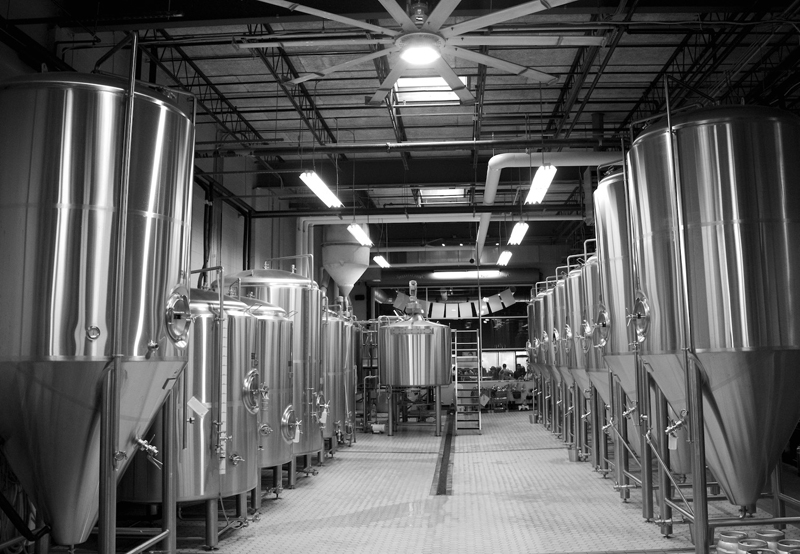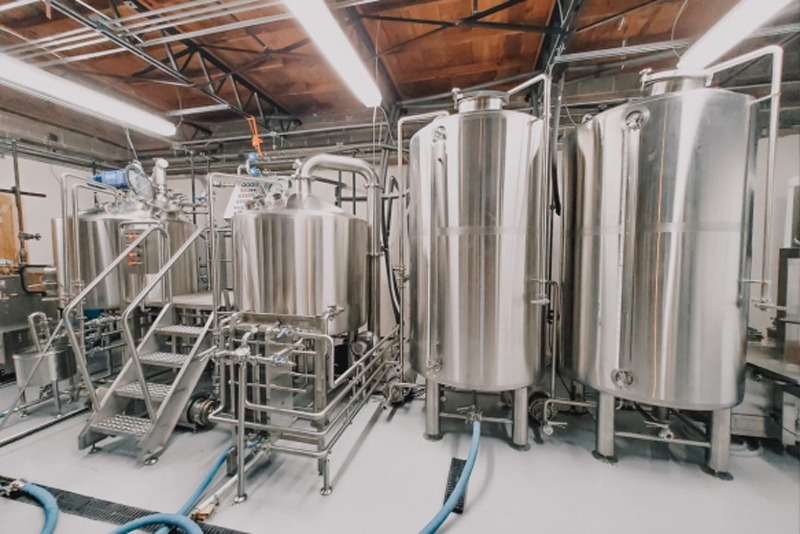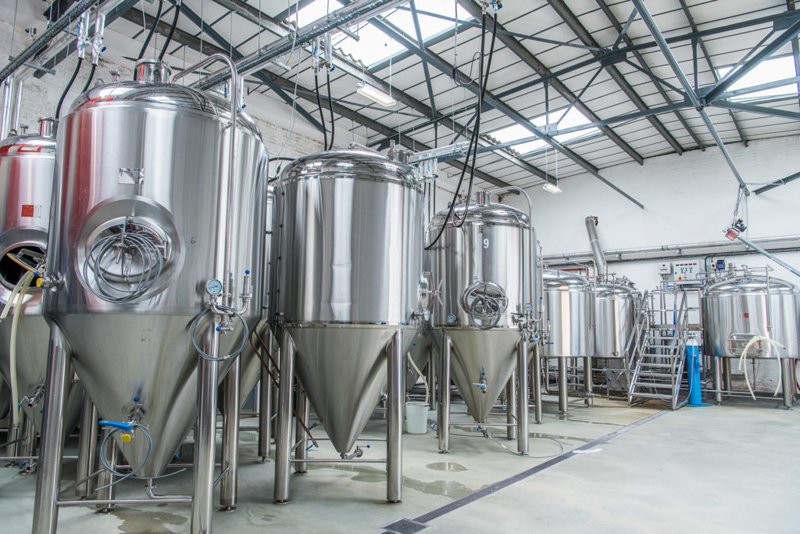Maintenance and Safety Tips for Brewery Operations
Brewing beer is an art form that requires precision, dedication, and a keen understanding of the craft and machinery involved.
From towering fermenters to complex piping systems, every component of a brewery plays a vital role in the production of great beer.
However, alongside creativity and innovation, we cannot ignore the importance of maintenance and safety.
In the dynamic environment of a brewery, with equipment running around the clock and people moving through a busy production floor, prioritizing maintenance and safety is crucial.
This article delves into the comprehensive area of brewery maintenance and safety, providing a wealth of insights, tips, and strategies to ensure the smooth operation of equipment, maintenance of strict safety standards, and a safe work environment for all brewery personnel.
Join us as we learn about the complexities of brewery maintenance and safety, where meticulous attention to detail and proactive measures pave the way to operational excellence and creating exceptional beer.
Let's raise a toast to the art of brewing, secured by a commitment to maintenance and safety.

Equipment Maintenance
In the dynamic world of breweries, creativity, and precision are intertwined, and machinery is the backbone of every operation.
To ensure the seamless coordination of the brewing process and maintain the quality of the final product, a strong equipment maintenance program is essential.
Let's dive into the key aspects of equipment maintenance that are the foundation for a thriving brewery.
Periodic Inspection
Routine inspections are the first line of defense against potential equipment failure. Breweries should develop a comprehensive schedule to inspect all machinery, including kettles, fermentation tanks, pumps, and valves.
During the inspection, trained personnel carefully inspect each component for signs of wear, leakage, or other abnormalities.
Early detection of problems allows for prompt repair or replacement, minimizing downtime and ensuring uninterrupted production.
Cleaning Procedures
Cleanliness is not only next to godliness, it is also a fundamental aspect of brewery operations. Strict cleaning procedures must be established for all equipment and adhered to.
Cleaning regimes should include manual and automated processes that target areas prone to microbial growth or product buildup.
The use of specialized cleaners and disinfectants ensures the removal of contaminants, product integrity, and consumer safety.
Lubrication And Maintenance
Proper lubrication is essential to reduce friction and extend the service life of your beer machinery's moving parts. A regular lubrication program should be implemented, paying special attention to bearings, gears, and seals.
In addition, breweries must perform preventive maintenance tasks such as belt tension adjustments, seal replacements, and motor inspections.
These proactive measures prevent premature wear and ensure optimal equipment performance.
Calibration And Quality Control
Consistency is critical in brewery operations, and precise calibration of equipment is fundamental to achieving this goal.
Sensors, meters, and other measuring equipment must be calibrated regularly to maintain the accuracy of temperature, pressure, and flow measurements.
Quality control protocols should be established to monitor brewing parameters and detect deviations from set standards.
This ensures consistency and quality of the final product batch after batch.
Employee Training And Empowerment
A knowledgeable and capable workforce is essential for effective equipment maintenance. Breweries should invest in comprehensive training programs to educate employees on proper equipment operation, maintenance procedures, and safety protocols.
Empowering employees to identify and report potential issues fosters a culture of proactive maintenance and continuous improvement.
Regular training courses and skill development seminars keep personnel abreast of technological advancements and best practices in equipment maintenance.
A proactive approach to equipment maintenance is critical to maintaining brewery operations and maintaining product quality and safety standards.
By prioritizing regular inspections, rigorous cleaning procedures, proper lubrication, precise calibration, and ongoing employee training, breweries can ensure the longevity and reliability of their equipment while fostering a culture of excellence and innovation.

Environmental Considerations
In this day and age, where environmental awareness is no longer an option but a responsibility, breweries are being asked to embrace sustainability as a guiding principle.In addition to brewing exceptional beer, breweries can minimize their ecological footprint and make a positive contribution to the planet. Let's explore the environmental factors that transform a brewery into a hub of sustainable innovation.
Waste Management And Recycling
Brewing produces a variety of waste, from spent grain to packaging materials. Implementing effective waste management and recycling practices is not only a recognition of environmental responsibility but also a strategic move to improve operational efficiency.
Explore innovative ways to repurpose by-products, for example, spent grains can find new life as animal feed or in the production of baked goods.
Implementing a strong recycling program ensures materials such as glass, plastic, and paper are returned to the production cycle, minimizing the brewery's overall ecological footprint.
Energy Efficiency And Conservation
Optimizing energy use helps reduce greenhouse gas emissions and mitigate climate change. Adopting energy-efficient equipment and practices can significantly reduce a brewery's environmental impact and operating costs.
From investing in energy-efficient lighting to adopting advanced brewing technology, every step toward greater energy efficiency contributes to a greener brewery.
Implementing energy-saving measures, such as optimizing heating and cooling systems, ensures that energy is used wisely and aligns brewing operations with sustainability goals.
Water Saving And Management
Water is a precious resource and breweries have a responsibility to use it wisely. It is crucial to implement water conservation measures, such as optimizing brewing processes to minimize water use and investing in water-saving equipment.
Additionally, implementing water management strategies such as rainwater harvesting and wastewater treatment systems can reduce water consumption and minimize a brewery's environmental footprint.
Green Building And Sustainable Design
From the start, the brewery embraced green building principles and sustainable design practices.
This includes utilizing environmentally friendly building materials, maximizing natural lighting and ventilation, and incorporating renewable energy systems such as solar panels and wind turbines.
Green buildings and sustainable design not only minimize environmental impact but also create healthier, more comfortable workspaces for brewery personnel.
Environmental factors are intertwined with sustainability and stewardship in brewery operations.
From waste management and recycling initiatives to energy efficiency and conservation measures, water conservation and stewardship strategies, and green building and sustainable design practices, each element helps breweries become more environmentally responsible.
As breweries take on the role of stewards of the planet, these considerations will serve as guiding principles, charting the path toward a more sustainable future for the beer industry and beyond.

 Jinan Alston Equipment Co.,Ltd.
Jinan Alston Equipment Co.,Ltd.